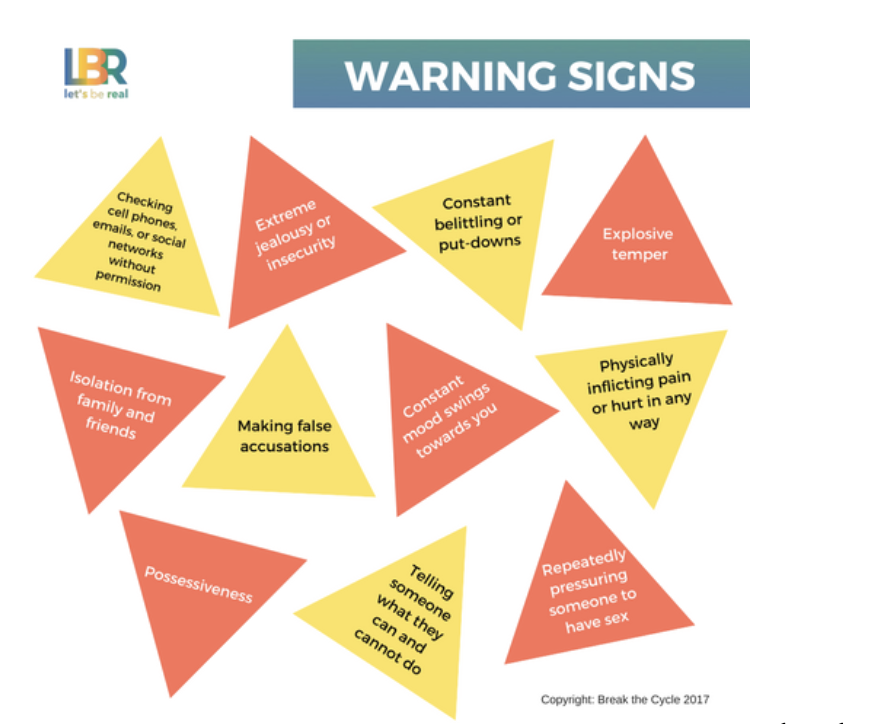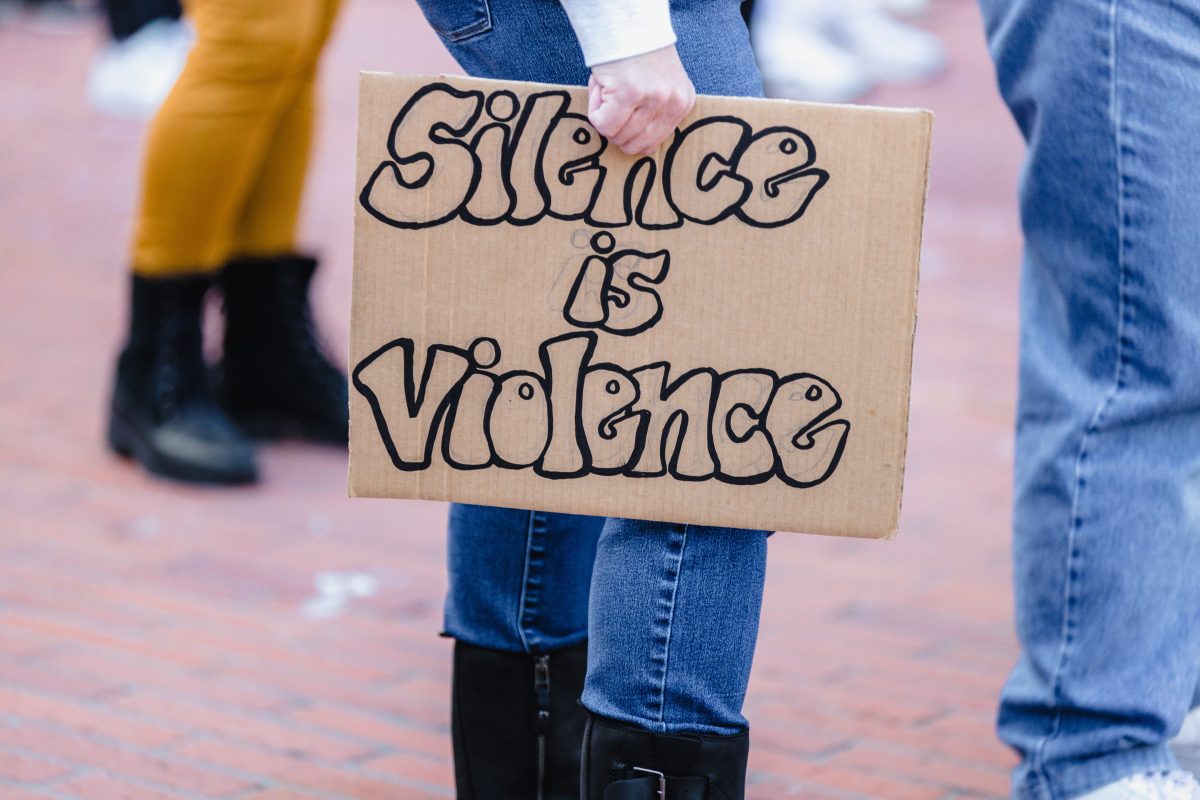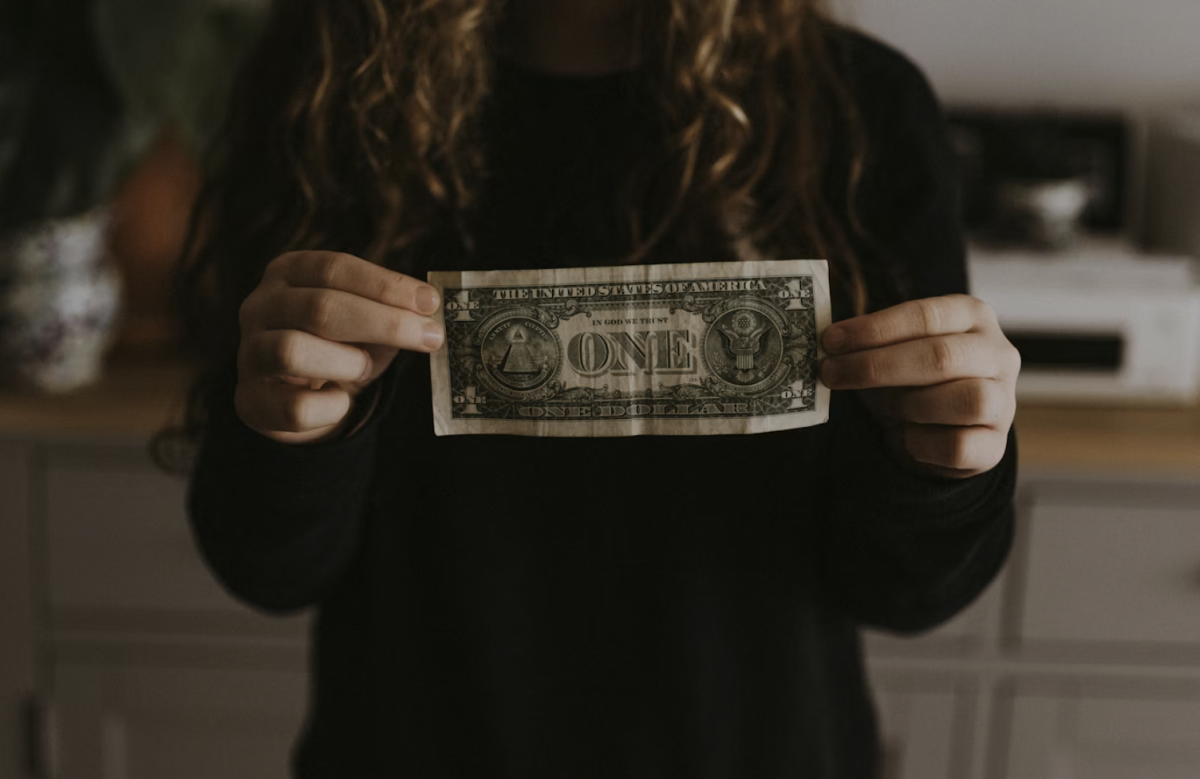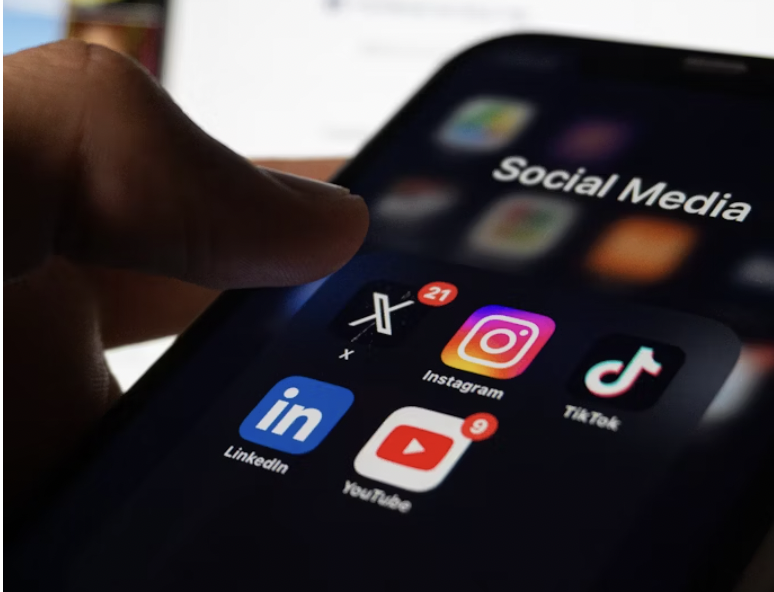Hafsa Faisal and Iffat Habibah
October is an important month. Not only is it the month of Halloween and the start of “Spooky Season,” but it also signifies Domestic Violence Awareness. Domestic violence is an important topic that is relevant to people throughout the U.S. and the world. It’s up to us to be educated about this topic, and know how to spot and help prevent it, especially in young people and their relationships.
What is Domestic Violence?
Domestic violence is abuse committed by a person close to the victim. It includes any type of abuse such as emotional, financial, and physical.
More than 10 million people experience domestic abuse yearly in the U.S and 5 million children are witnesses to violence. People in all types of relationships can be exposed to domestic violence. One in four women and one in seven men experience severe intimate partner abuse in their lives. In a study conducted by the Institution of Women’s Policy Research (2022) found that black women experience domestic violence at the highest rate; more than 40%. Systematic discrimination and lack of resources can lead to people finding themselves in harmful relationships.
Domestic abuse is common in teenage lives as well. Statistics state that 26% of women say they have gone through intimate partner abuse before the age of 16.
Signs of Domestic Violence

Victims of domestic violence are often belittled and threatened by their abusers. Abusers can limit a person’s freedom by forcing them to do actions that might be harmful. For example, peer-pressuring them into taking drugs or alcohol. The abusive partner might gaslight their victims and see the person as an object to manipulate and control. Many people are scared to leave abusive relationships as they fear that their abusers might take action to hurt them, like stalking them or interfering in their personal lives.
Speaking to an Expert
We conducted an interview with the Mental Health and SAPIS Counselor at Benjamin N. Cardozo, Ms. Armani Osborne. We spoke about domestic violence and the impacts it has on individuals, ranging from different groups/ages.
Q: How do abusers in teenage relationships gain control over their victims?
A: I think that teenagers gain control of others through manipulation. I think young people have a lot of childhood trauma that is easy to manipulate. Sharing locations and going through people’s phones are some signs that could lead to domestic violence.
Q: Does social media have an impact on that?
A: Absolutely. Controlling what pictures your partner likes, who they follow, or “why are you DMing this person”- the control. The objective of domestic violence is to gain control. Social media is definitely a way to do that.
Q: How does domestic violence present itself? Does it always have to be physical?
A: No, so domestic violence can be mental, it can be mental, it can be financial, it can be spiritual, and emotional. These are all examples of how domestic violence is more than just physical.
Q: What leads to a person being an abuser? Is it their past trauma?
A: Yes, so it could be mental health and that could be from past trauma or that could be new trauma that developed. A mistrust situation—so if somebody cheats on the other that could cause the other person to want to be possessive or controlling. I would say that it starts in the household, how the child is brought up, so it could be a generational aspect. We are all like sponges so if we see and aboard certain things we tend to imitate that certain behavior.
Q: Do you think parents contribute to domestic violence?
A: I think a lot of people like to mind their business. Parents can try to teach their children but I tell children this, the only control you have is over yourself. You cannot control anybody else besides yourself no matter how you raise them or train them. I think that once someone becomes an adult some parents might just be hands-off. They are like “My kid’s an adult now”, “They are making their own decisions.” But parents might be the influence or the reason why people commit domestic violence acts.
Q: Does misogyny play a role in domestic violence? Does it impact both men and women?
A: Absolutely, so I think it impacts everyone, but historically and typically, it is a woman who is fragile, a woman who has no job, a woman who has no family or is taken away form their family and a man is abusing them—that is typical. But a man could abuse a man, a woman could abuse a woman, a woman can abuse a man, I think it has to do with mental illness, it has to do with demographics and there are a lot of different factors that play into that. Sexism plays a huge part because men are supposed to be the head of the household- the controller and women are supposed to cook, clean, and bear children, and be the submissive housewife. So it is mainly a power imbalance. It can happen in any relationship. That showed America right there that it is just not men being the perpetrators, it can be women. It can go all ways, it could happen to anybody.
Q: How do gender roles subtly impact relationships today?
A: Gender roles play a huge part. Because one person is going to be more dominant and the other person is going to be more submissive naturally. It doesn’t matter if it is two women, two men, or a heterosexual couple. One person tends to be the breadwinner and like the “pants” or the head of household. Whoever is the dominant one in the relationships can kind of get a power trip and they can take advantage of the more submissive one of the relationship.
Q: Why do so many successful women stay in abusive relationships?
A: Because something like that affects your mental health and it doesn’t matter how many resources or money or how famous you are, you cannot buy a new brain, you cannot buy a new way of feeling. You have to work for it, so I think a lot of famous people stay in these relationships because they do not know any better. If you see your mother stay with your abusive father, you can stay with your abusive partner. It does not matter what is in somebody’s bank account or how famous somebody is—staying in that situation. Especially if you love them, love is ugly sometimes.
Resources for Help
Domestic violence can be life threatening. Anyone can be going through it and it’s up to them, along with their loved ones to make sure they seek help.
If you are being abused or have a friend going through these difficult circumstances, please call 800-799-7233.
Or Contact the NYS Domestic and Sexual Violence Hotline: call 800-942-6906, text 844-997-212.
There is always somebody in your corner, you are not alone in this fight, especially during this month.
Wear purple this month to help bring more awareness!







